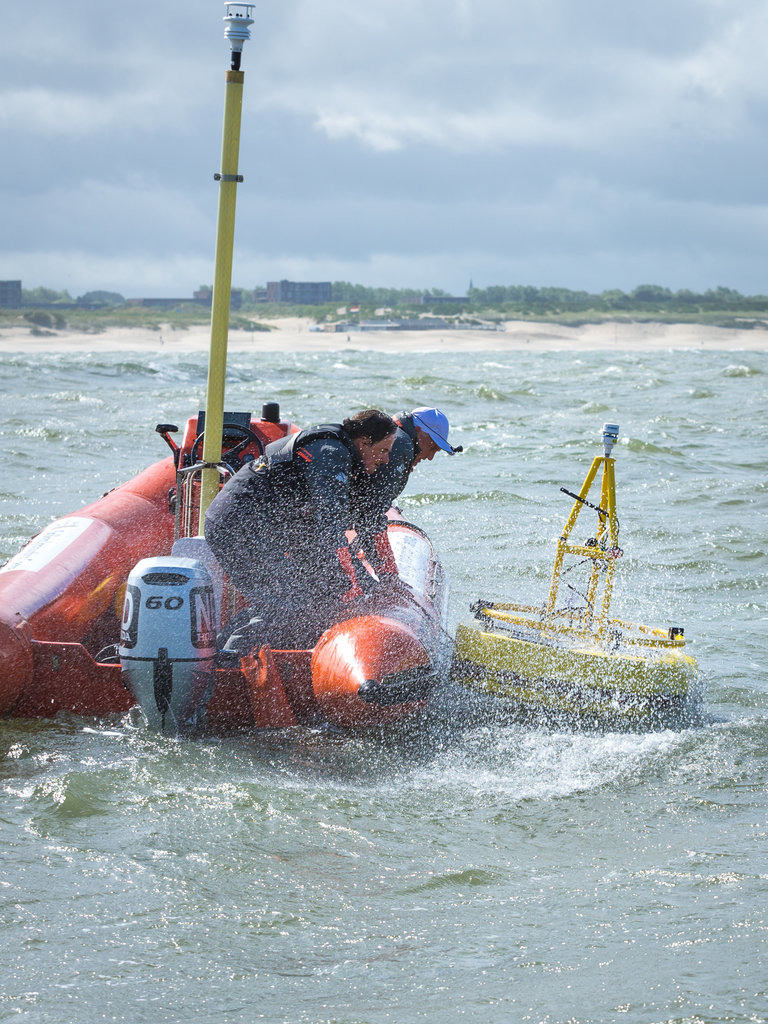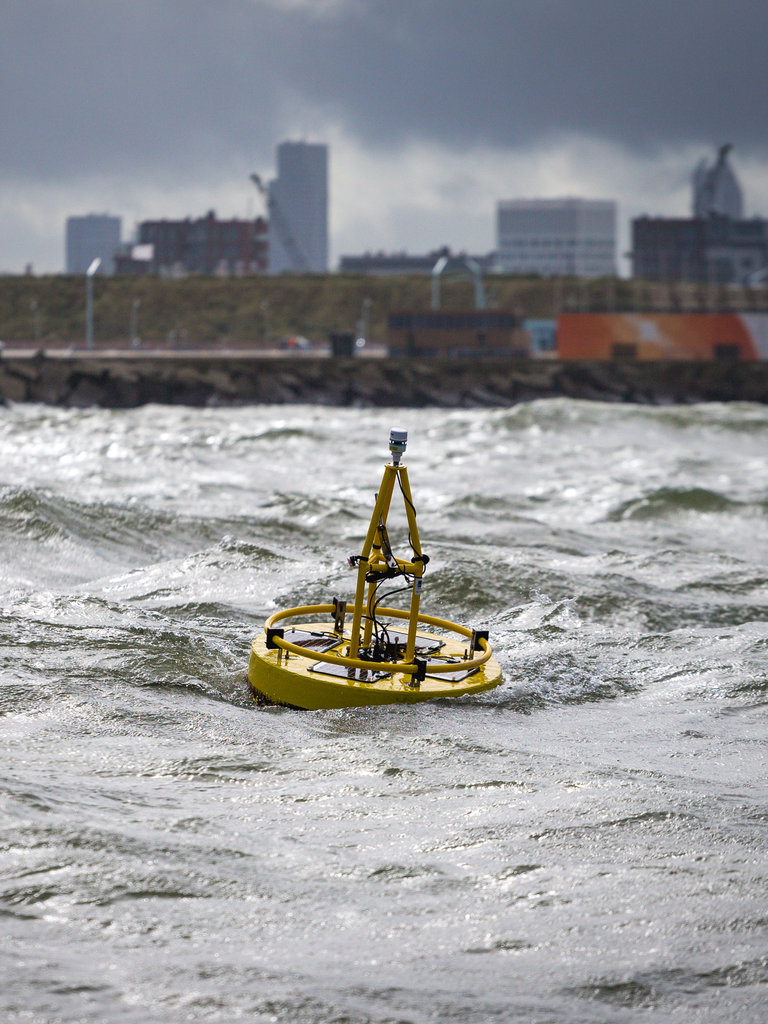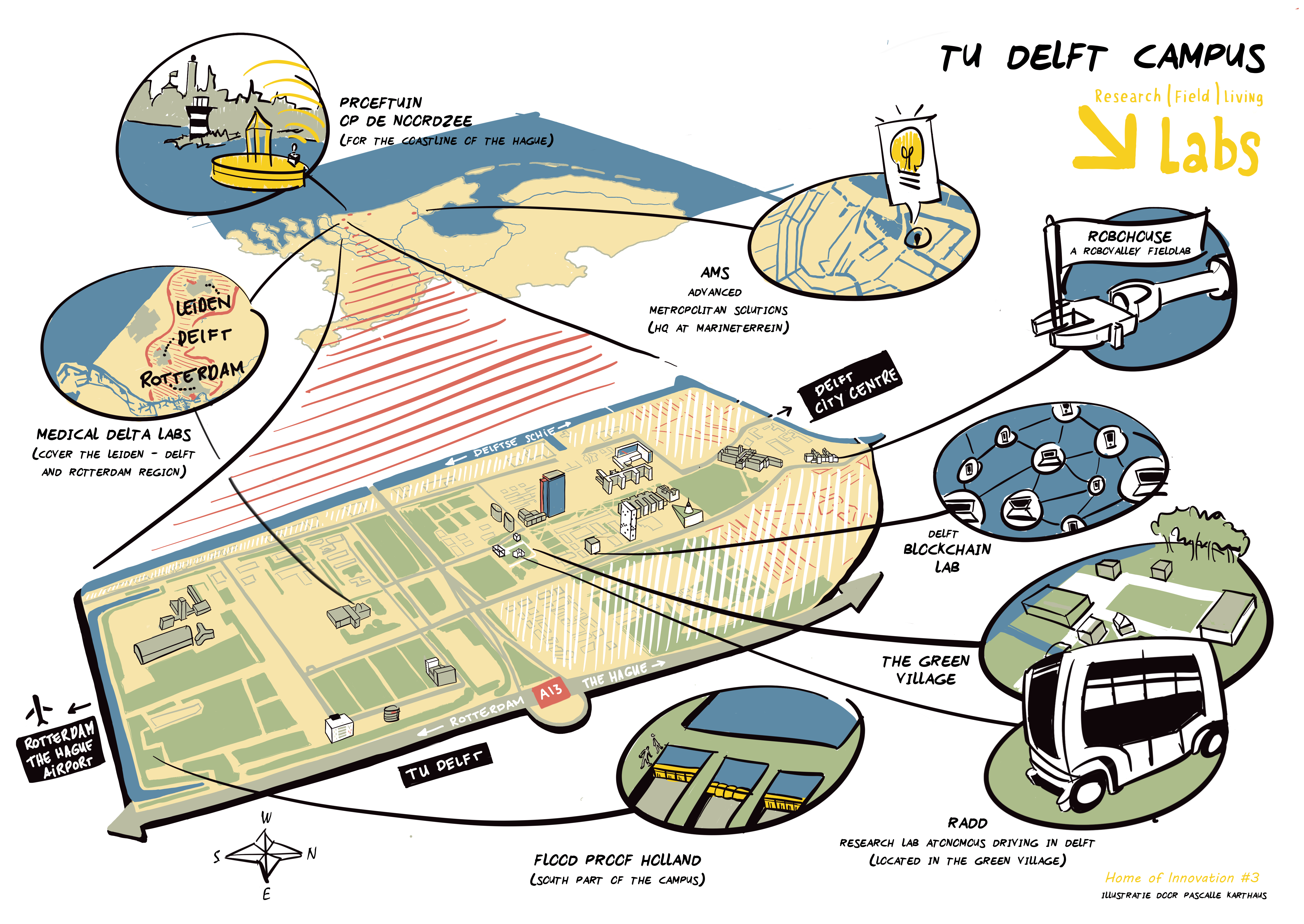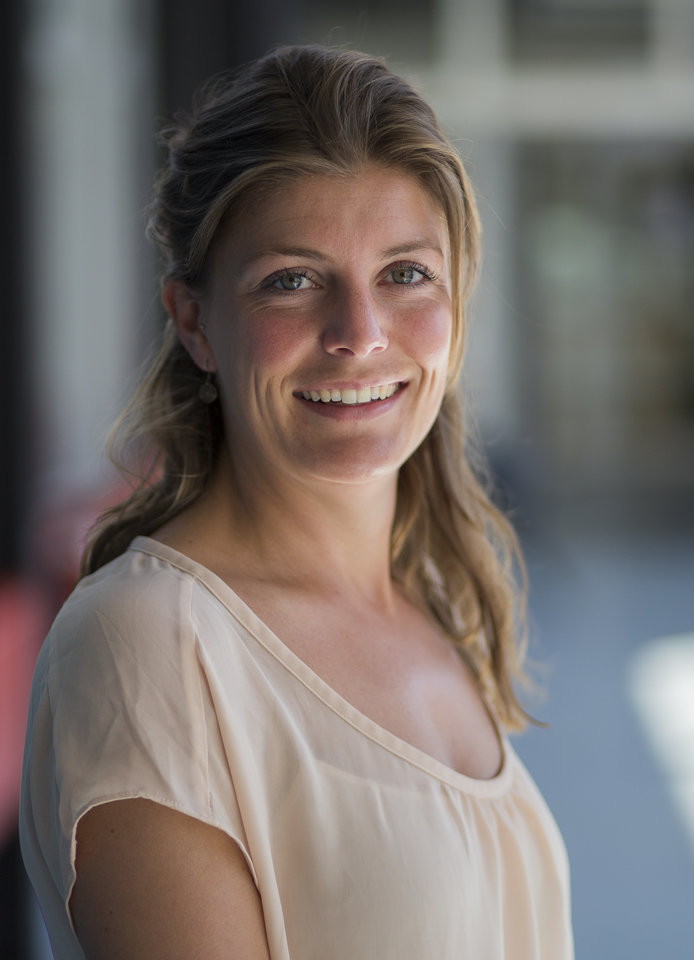
Field lab in the North Sea
Text: Jurjen Slump
Photography: Klaas Wiersma
A field lab (‘Proeftuin op de Noordzee’) is being constructed off the coast of Scheveningen. This field lab (covering an area of 10x10 nautical miles) will be equipped with an extensive data infrastructure. Here, the maritime sector will be able to test its new products and applications in practice. Think of, for example, a tracking system for kite surfers or a system for providing real-time information during sailing competitions.
This field lab is an initiative of TU Delft, KPN, TNO, the Sailing Innovation Centre, the Royal Netherlands Watersports Association (Watersportverbond), Svašek Hydraulics and the Municipality of The Hague. These parties will receive a 1.7 million Euro grant from the European Regional Development Fund (ERDF) and also contribute their own funds to the lab. This creates a total funding of 4.3 million Euros.
The field lab consists of a network of smart buoys fitted with a whole range of measuring equipment, and a network to send the collected data to the shore. Companies (start-ups, SMEs as well as the manufacturing industry) that want to test any application are welcome to use this infrastructure.
The various partners contribute to the project based on their specific expertise. For example, KPN will install the data network and TU Delft will focus on the scientific data science research to be carried out at sea. Svašek Hydraulics is an engineering firm that develops flow models. They will use the field lab to expand and optimise their flow models.
The project also focuses on the development of the port of the future, where big data will play an ever greater role and the port office will increasingly take on the function of a control room.
To encourage the involvement of SMEs, a separate SME scheme has been set up for entrepreneurs. Under this scheme, SMEs are eligible to receive a 25 thousand Euro grant for concrete projects. The Sailing Innovation Centre will act as a ‘counter’ for the entire programme, where demand and supply meet.

A view on: 'Proeftuin op de Noordzee'
by Anoek van Vlaardingen, Project Manager
Smart buoys
“Many companies are already carrying out tests on inland waterways - for example, for autonomous sailing or the use of drones for inspection and maintenance activities - but they are not yet ready to make the transition to the open seas. The Proeftuin op de Noordzee field lab offers them the opportunity to do this. Smart buoys packed with sensors will be placed within the test area. The data will be sent ashore via a 4G network to be analysed there. This will include information about currents, wind levels or wave heights, but it’s also possible to collect personal data such as the heartbeat of sailors during sailing races.”
Sail Coach Cockpit
“One of the projects involves a smart coach boat. At present, coaches often lack access to adequate information. By fitting sailboats and sailors with various sensors, the coach can gain access to such details. Based on this, they can decide to change course, if required. Today captains often make such decisions based purely on instinct, but soon they will have access to all the relevant data via smart buoys to help them make more informed choices.”
Offshore industry and fishing
“The same information can also be relevant for the offshore industry or the fishing sector. For example, this information can be used to map out the most energy-efficient route for maintenance vessels of offshore wind farms or fishing vessels. The smart buoys can also be used for safety purposes: tracking kite surfers or locating drowning people with the help of drones.”
Digitisation on the high seas
“Digitisation at sea is progressing at a slow pace. We expect it to take at least another decade before internet connectivity at sea is just as readily available as it is on land. This project is intended to speed up the process. This will also have consequences for the harbour master’s job. The port office will increasingly become a control room, with lots of data pouring in. TNO intends to conduct a study to determine what the port office of the future should look like.”
TU Delft
“TU Delft will mainly focus on sailing as a sport. We want to find out how information can be provided in the most optimal manner. How can you make all the data coming in from the smart buoys about wind conditions, currents and the sailor's behaviour available to the coach in a clear and easily understandable manner? We also want to try to make sailing competitions more attractive to onshore visitors. Using 3D techniques, virtual and augmented reality, we will try to give them a better view of the competition.”
Volvo Ocean Race
“This project offers TU Delft a unique opportunity to bring their research to the market more quickly. The technology transfer component is built into the project right from the start. Thanks to the SME scheme, we also hope to attract many companies that want to test their applications. Scheveningen is increasingly becoming the Mecca for Dutch sailing. This year, the Volvo Ocean Race will finish in Scheveningen. During this event, we will be at the innovation pavilion to demonstrate to the general public the first prototypes to be tested at 'Proeftuin op de Noordzee'.”

